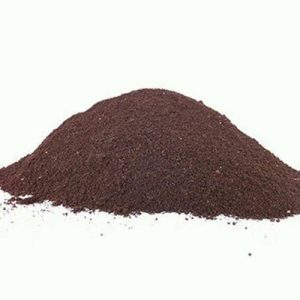Blog
A Guideline to Ensuring Productive and Disease-Free Crops
Are you ready to take your crop production to the next level? Could it be said that your plants are burnt out on managing illnesses that unleash ruin on your plants, leaving them feeble and inefficient? Look no further! In this significant conversation, we will know the means fundamental for guaranteeing useful and sickness-free harvests. From site selection to soil preparation, and organic fertilizers to Rhizobium inoculants, we’ve got all the tips and tricks you need to cultivate healthy plants that thrive like never before. So now we know how to improve your agriculture!
Site Selection and Soil Preparation
With regards to becoming sound and illness-free yields, site determination and soil readiness assume a major part. Selecting the right area for your agriculture in guaranteeing ideal development and efficiency.
Consider the amount of sunlight your plants will receive. Most crops require full sun exposure to thrive, so choose an area that receives at least 6-8 hours of direct sunlight every day. Avoid shady spots or areas with excessive shade from buildings or trees.
Next, assess the drainage capabilities of the soil. Crops prefer well-draining soil that allows excess water to flow away easily. Poorly drained soil can lead to waterlogged conditions, which promote disease development. Ensure that your chosen site has good natural drainage or take measures such as installing raised beds or improving soil structure through organic matter additions.
Soil fertility is another critical factor in crop health. Now you may a soil test to know about its nutrient position and PH level. This information will help you make informed decisions about fertilization requirements and amendments needed for optimal plant growth. Before planting, prepare the soil by removing any weeds or debris that may compete with your crops for nutrients and resources. Till the land gently, breaking up clumps while avoiding excessive compaction of the soil structure.
Via cautiously choosing an optimal site and appropriately setting up the dirt prior to planting, you are putting yourself in a good position in developing useful and disease-free cultivation!

Utilize Organic Fertilizers and Corrections
When it comes to ensuring productive and disease-free crops, organic diseases and corrections play a crucial role. These strategies center around using normal assets to battle vermin, illnesses, and supplement lacks in plants. By integrating natural practices into your cultivating methods, you can advance the soundness of your yields while limiting the utilization of unsafe synthetic substances.
One effective method is using biocontrol agents such as beneficial insects or mites that prey on crop pests. Ladybugs are known for their voracious appetite for aphids, while predatory mites feed on spider mites. Introducing these helpful allies into your fields can help control pest populations naturally.
Another approach is making use of organic amendments like compost or manure to improve soil fertility. These materials provide essential nutrients to plants in a slow-release form, promoting healthy growth without causing nutrient imbalances or leaching issues often associated with synthetic fertilizers.
Additionally, Organic Fertilizers can aid in plant and soil improvement. Cover crops not only act as a physical barrier against weeds but also enhance soil structure by adding organic matter.
Moreover, rhizobium is useful bacteria that form reciprocal relationships with leguminous plants such as peas and beans. They convert atmospheric nitrogen into a usable form for plants through nodules formed on plant roots. This process reduces the need for synthetic nitrogen fertilizers while improving soil fertility naturally.
Applying specific minerals like zinc sulfate helps correct micronutrient deficiencies in crops. Zinc active an essential role in various enzymatic reactions within plants and aids in proper development and growth.
By embracing these organic approaches – from utilizing beneficial insects to amending soils with compost – you can foster disease resistance among your crops while maintaining environmental sustainability! So why not explore these natural alternatives today?

